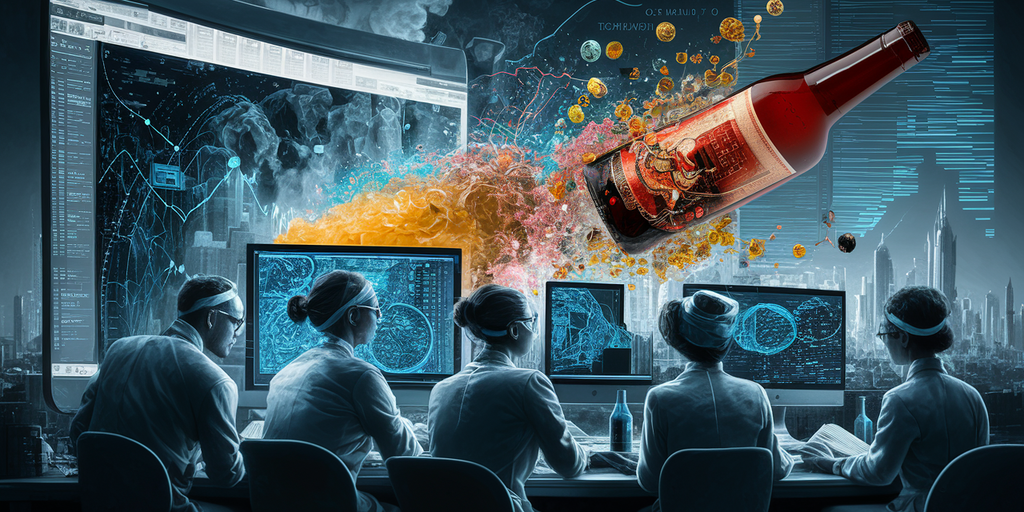Revolutionizing Beer Taste with Artificial Intelligence
The realm of food and beverages is on the brink of a groundbreaking transformation, courtesy of artificial intelligence. Gone are the days of mundane flavors; AI is now stepping in to redefine taste experiences, starting with everyone’s favorite – beer. What was once an acquired taste for specific individuals is now set to become a delight for all, thanks to the innovative application of AI technology.
The AI Approach to Brewing Perfection
A recent research paper published in the prestigious journal Nature Communications detailed how a team of experts utilized AI and big data analytics to revolutionize the beer industry. By conducting extensive chemical analyses and training AI models on sensory data, researchers identified specific compounds that can enhance the taste of various brews.
The study, which involved analyzing over 250 commercial Belgian beers of diverse styles, delved deep into the chemical properties that contribute to taste. Each beer underwent meticulous chemical profiling, measuring over 200 different properties encompassing esters, alcohols, acids, and aroma compounds.
These chemical fingerprints were then cross-referenced with quantitative sensory evaluations by trained tasters, along with thorough scrutiny of over 180,000 online reviews from beer connoisseurs. This comprehensive approach allowed researchers to uncover intricate links between a beer’s chemical composition, perceived flavors, and consumer appeal.
The Role of Machine Learning in Beer Crafting
Employing advanced machine learning algorithms, particularly gradient boosting, researchers were able to predict complex food features and consumer appreciation accurately. Unlike traditional statistical methods, gradient boosting excelled in identifying the key compounds driving beer flavor and consumer satisfaction.
Noteworthy findings from the research included the revelation that certain compounds, such as methanethiol and ethyl phenyl acetate, traditionally associated with staleness, could actually enhance the taste of beer when used judiciously. Surprising discoveries like these underscore the transformative potential of AI in the food and beverage sector.
AI’s Impact Beyond Beer
While the application of AI in perfecting beer flavors is impressive, its implications extend far beyond the brewing industry. Similar AI-driven chemical profiling techniques could revolutionize the flavors of plant-based meat alternatives, low-sugar beverages, and snacks, ushering in a new era of sensory delight.
In conclusion, the fusion of cutting-edge analytical techniques, sensory science, and machine learning offers a glimpse into the future of food engineering. The possibilities for quality enhancement, recipe development, and sensory research are limitless, heralding a new age of innovation in the culinary world.
So, the next time you savor a flawlessly crafted beer that tantalizes your taste buds, remember to tip your glass to the marvels of artificial intelligence. Cheers to a future where AI transforms the ordinary into the extraordinary!
Image/Photo credit: source url





